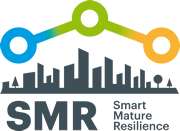The “Climate Navigator” is meant to support decision-makers in cities and local authorities in circumnavigating climate risks. The revised version is now even more attuned to municipalities’ needs, making the online guide the most up-to-date tool for climate change adaptation available in Germany.
Floods, heat waves, protection from heavy rains and storms – municipalities are on the front lines of adapting to the impacts of climate change. However, the climate adaptation challenges facing municipalities are as varied as the municipalities themselves. Decision-makers from cities and local authorities must therefore come to terms with the topic of climate adaptation early on: well-planned adaptation measures don’t just prevent risks, they also save municipalities high costs and can preserve and even increase a city’s quality of life.
In the last few months, the “Climate Navigator” provided by the German Environment Agency (UBA) has undergone a comprehensive revision and been brought up to date. In early May the new version of this tool was finally introduced. The online guide is meant to support decision-makers in cities and local authorities in circumnavigating climate risks and pursuing opportunities. The revised version of the Climate Navigator is even more attuned to municipalities’ needs. Specialised prior knowledge of the effects of climate change is thus unnecessary to use the revised edition. It is immediately available in German for free download at http://www.uba.de/klimalotse.
adelphi optimised the Climate Navigator under commission of the UBA and in close cooperation with its partners Prognos and ICLEI Europe. “The Climate Navigator allows cities and local authorities to adapt to the impacts of climate change independently and according to their needs. As a result of our comprehensive revisions, the Climate Navigator is the most up-to-date instrument for small and medium-sized municipalities now available in Germany”, said Christian Kind, Senior Project Manager at adelphi and expert on climate change adaptation.
Climate Navigator leads users to a fitting strategy in five steps
The new version of the climate navigator is more flexible and takes into account many aspects of climate adaptation more deeply than before: The focus is no longer solely on creating an adaptation strategy; users are now supported much more in developing integrated climate protection and adaptation strategies. The instrument supports cities and local authorities through five modules to reach three different goals: as needed, they can (1) develop a simple adaptation strategy, (2) create an integrated climate protection and adaptation strategy, or (3) plan and implement measures for adapting to the impacts of climate change.
Alongside the comprehensive update of the guide, the topics “Financing Adaptation Measures” and “Strategy Creation and Integration” have been particularly expanded and attuned to practices in the municipalities. Legal developments have been added, and a multitude of tips and suggestions from Climate Navigator users have been taken up. To help users more quickly orientate themselves, picture galleries illustrate the technical information with the help of examples and documents from individual municipalities. This allows users to find a range of council decisions on the implementation of adaptation processes, maps on city climates, approaches for inter-municipal cooperation, and successfully implemented strategies.
Municipal decision-makers can find and download tested templates on the website of the German Environment Agency; for example, for documenting past extreme events, or a blueprint for generating a strategy. The Climate Navigator provides assistance for working on especially challenging tasks, for example with tips given by actors from the field, or in the form of links to other instruments.
You can find the updated Climate Navigator, further materials, and the associated newsletter at www.uba.de/klimalotse.


